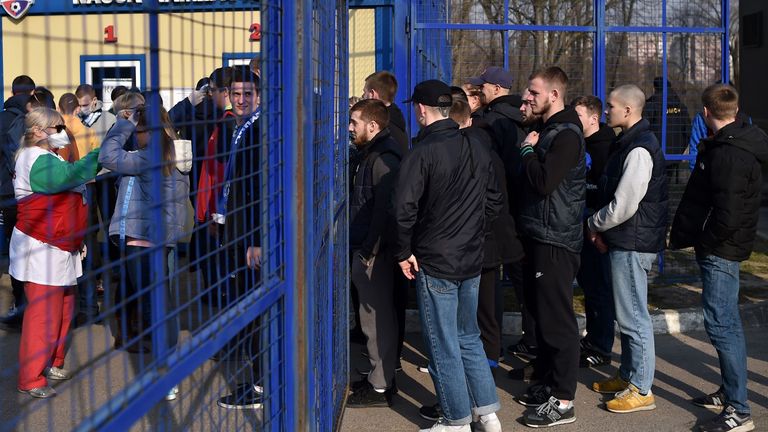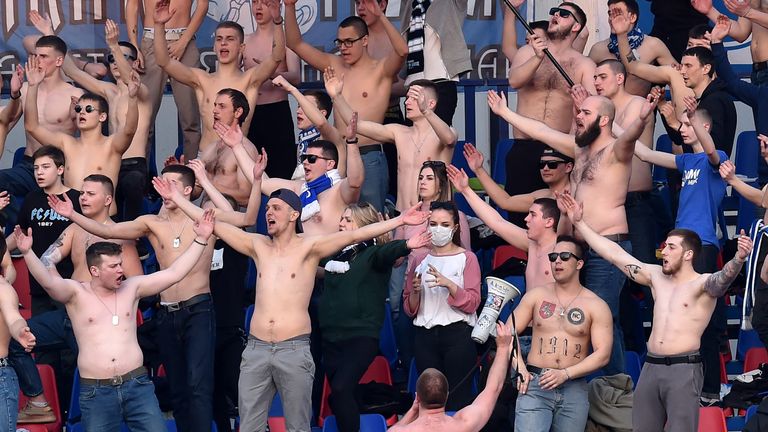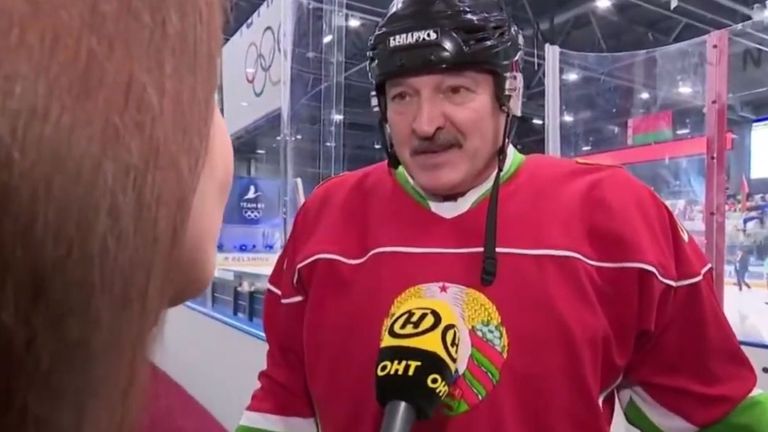Coronavirus: Why the Belarus Premier League kept playing during pandemic
Belarus Football Federation's Aleksander Aleinik: "When someone says it's wrong from abroad we have a better feeling of what is happening in Belarus than they do."
Wednesday 13 May 2020 22:04, UK
As Europe shut down country by country over the past months, football became one of the many industries brought to a standstill.
League after league ground to a halt, and as remote video workouts and running app competitions became the norm for elite athletes everywhere, there was one country that insisted the show must go on.
Football in Belarus stood alone and defiant, continuing to play games which led to professional players union FIFPRO labeling the decision as "not comprehensible".
"I think we had below 100 cases when the season started," Aleksandr Aleinik of the Belarus Football Federation told Sky Sports News.
"Our Ministry of Health took a lot of measures in order to prevent the spread of the virus. They sent recommendations to us and we sent them to the clubs."
Fans continued to attend the games as the Football Federation introduced hand sanitiser and temperature checks at some venues.
"Our average numbers for last season are just over 2,000 spectators and it became lower this season following news of the virus," Aleinik said.
"We didn't lock the stadiums from public access but we tried to seat people at a certain distance from each other. We also added anti-bacterial gel and had medical staff monitoring temperatures."
Meanwhile, outside the country football supporters worldwide craved action during lockdown at home. Sky Sports News broadcast goals and one group of friends in Australia launched a fan group and met virtually to stream live games.
After watching SFC Slutsk beat Slavia Mozyr 3-1 - in a game during which five penalties were awarded - they were hooked, but it became clear there were mixed feelings among those providing the entertainment.
"There were different opinions. At the time we were the only league that played and it generated a lot of attention from other countries and media," Aleinik said.
"Some players, especially from abroad, were concerned but some players were totally okay with continuing. We didn't have players refusing to play or leaving the club camp but there were different opinions."
The virus is only now beginning to impact on the league with this Friday's game between FC Minsk and Neman Grodno postponed after one player showed symptoms of COVID-19.
It follows the postponement of second division match FK Arsenal v Lokomotiv Gomel and the players involved will be tested.
The leader of the government in Belarus, President Alexander Lukashenko, attended an ice hockey game last month, declaring that sport "is the best anti-virus remedy" and was even quoted as saying drinking vodka would help.
So is the Belarus Football Federation's decision-making process influenced by such quotes?
"One thing is the translation and the other is context," said Aleinik. "I really wouldn't like to comment on this. The decision our FA makes is based on all of the information we get from health authorities.
"It's hard to give a precise comment about something going on in another country. When the virus got worse the borders were closed.
"There are different actions taken in different countries. There are different approaches. We have a healthcare system we fully trust and based on our communication with them we took the decision.
"When someone says it's wrong from abroad we have a better feeling of what is happening in Belarus than they do."








